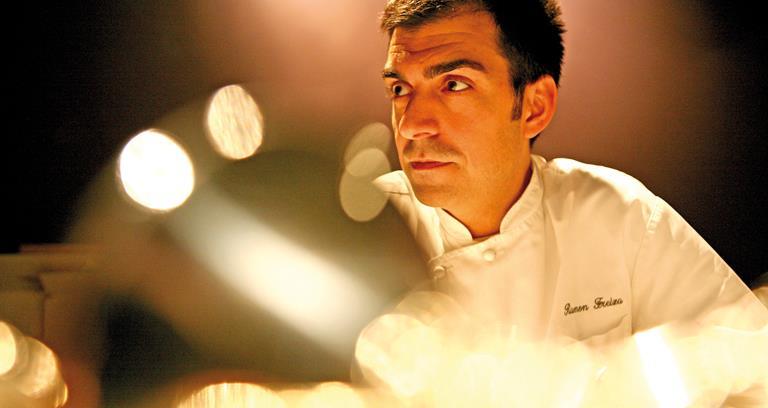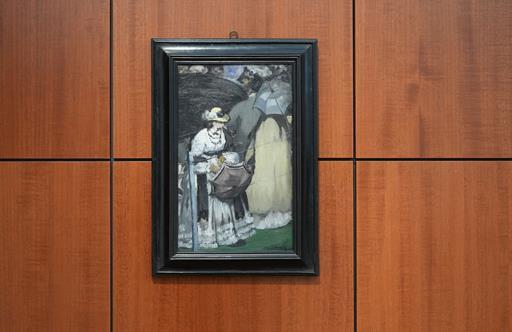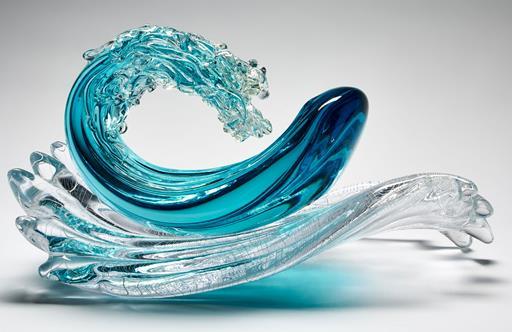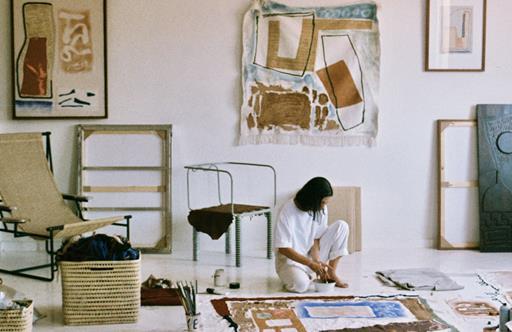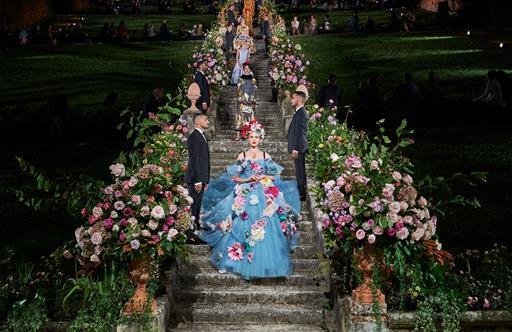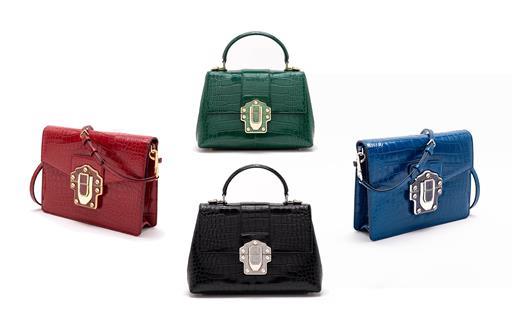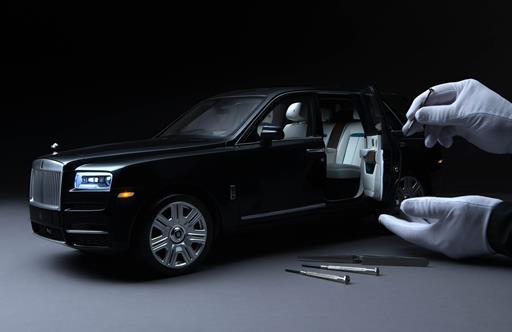Born To Braise
In conversation with chef Ramon Freixa, on his history and culinary philosophy
Son of a Michelin-starred chef and a maître d', grandson of bakers and confectioners, Ramon Freixa went straight from crawling in the kitchen of El Racó d'en Freixa, his family's Barcelona restaurant, to cooking in it.
After learning all his father had to teach him, Freixa took off for Belgium and France to learn the art of haute cuisine before returning and revamping the family establishment, now called Freixa Tradició. He has gone on to write prize-winning cookbooks and earn two Michelin stars for Ramon Freixa Madrid, his spacious restaurant serving "technical-emotional" cuisine in the intimate Hotel Único Madrid, while running a catering company and a restaurant in the Grand Hotel Central in Barcelona. Add to this an opening in Cartagena, and the result is the germination of the Freixa name into a culinary powerhouse.
You cooking has been described as a mix of "tradition and avant-garde". How do you harmonise the two?
I don’t think that it has to do with harmonising the two. They both go hand-in-hand, and in order to create avant-garde cuisine, it is “condicio sine qua non” [a pre-requisite] to have mastered the traditional. You can’t have one without the other.
Would you call your cuisine "Spanish"?
Not particularly; I would call it Mediterranean. It is a wider concept, and I think it adjusts better to our products’ philosophy and influences. I try to use national products, when possible the so-called Km0 [meaning: kilometre zero, or the point from which distances are measured. In other words, products available locally at source]. The quality is much better, but I do not limit myself. I also use products from other cultures to enrich my cuisine.
What would you say is your most unique invention?
There is one dish that I find very special, but not because it is more (or less) complex, but because it is comprehensible to everyone. It is the duck hamburger with green mustard ice-cream, caramelised red onion, brown sugar ketchup and idiazabal cheese [made from unpasteurised sheep milk]. It is a very democratic dish.
You're known for your humour. How do you express your humour in your food?
I have the good fortune of being a well-balanced person, and I am almost always in a good mood. A good mood is necessary to do everything in life, and I try to promote a good environment in my team. The work is not so hard when one is having a good time and laughs, and the more pleasure you get from your work the better the results. I am convinced that it also shows in the final product we offer to our clients. Laughter, like cooking, is a universal language.
You learned from many sources: your grandparents, father, well-known chefs in Belgium and France, and others. From whom did you learn the most?
Well, actually the person who I learned from the most is not a cook, it is my mother. I was a very shy boy, and she always encouraged me to fight that shyness. At the same time, she also protected me. She helped me become the person I am today. She helped me come out of my shell and open myself to the world without any fear.
When did you realise you wanted to become a chef?
There was not any particular moment. I’ve always felt comfortable among chefs, almost since I was still in nappies. I can tell you that I did not choose to become a chef, my profession found me. It was a natural process.
You've said you enjoy making desserts more than anything. Why?
Making desserts is a very rewarding job because who doesn’t like desserts? What makes them different is their creation – that almost always implies you get your hands messy, covered in sugar, flour, eggs, etc. This makes it a fun process. Children love baking because of that, and so do I.
What is your favourite thing to do when you come home from working long hours in the kitchen?
Take my shoes off, lie down on the sofa and watch any gossip show, they help me to unwind. Maybe they don’t impart anything worthwhile, but it doesn’t hurt watching them from time to time – just like processed baked goods!
What is the one thing in the world you could not live without?
If you are talking about food, then chocolate without any doubt. But if the question is more generic, obviously I could not live without the people I love. They help me to keep my feet on the ground.
What is your culinary guilty pleasure?
Pink Panther Cake. They were small sponge fingers covered in pink chocolate and stuffed with white cream of an unidentified flavour. When I was a child, my grandparents had a grocery store and bakery. My mother did not like us eating those kind of processed baked goods, but our grandmother gave them to us secretly.
Do you have any dreams for your future?
Yes, but I’d rather not put them into words in case they don’t come true. I can tell that I am already going through a very successful period personally and professionally, so if my dreams did not become true it wouldn’t affect anything. I have more than I ever dreamed of. I consider myself very lucky.
Do you have any advice for home cooks?
Cook for the people you love and always give the best of yourself, and it will taste like ambrosia to them.
